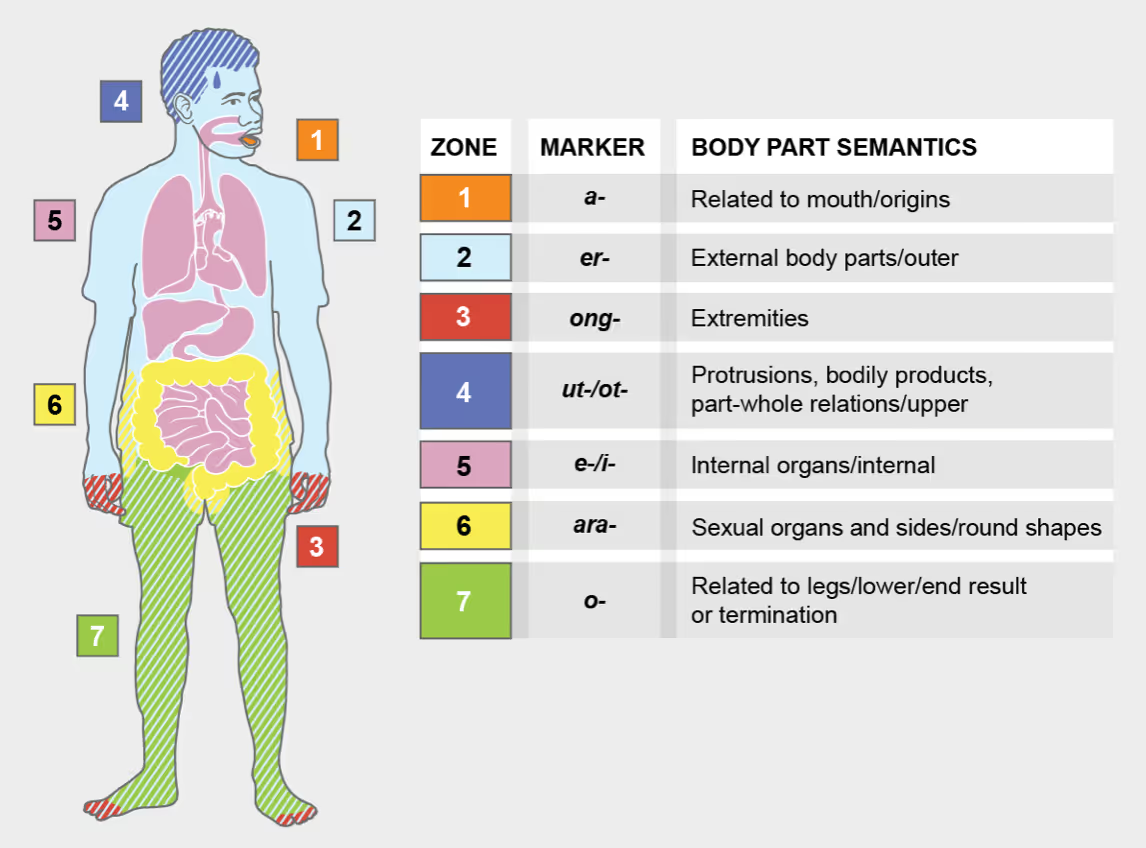
"Great Andamanese, it turns out, is exceptional among the world's languages in its anthropocentrism. It uses categories derived from the human body to describe abstract concepts such as spatial orientation and relations between objects. To be sure, in English we might say things like “the room faces the bay,” “the chair leg broke” and “she heads the firm.” But in Great Andamanese such descriptions take an extreme form, with morphemes, or meaningful sound segments, that designate different zones of the body getting attached to nouns, verbs, adjectives and adverbs—indeed, to every part of speech—to make diverse meanings."
Author Anvita Abbi is a linguist specializing in Indigenous languages. She received the Padma Shri Award in 2013 from the president of India and the Kenneth L. Hale Award in 2015 from the Linguistic Society of America. Abbi serves on the expert committee of the UNESCO World Atlas of Languages.

